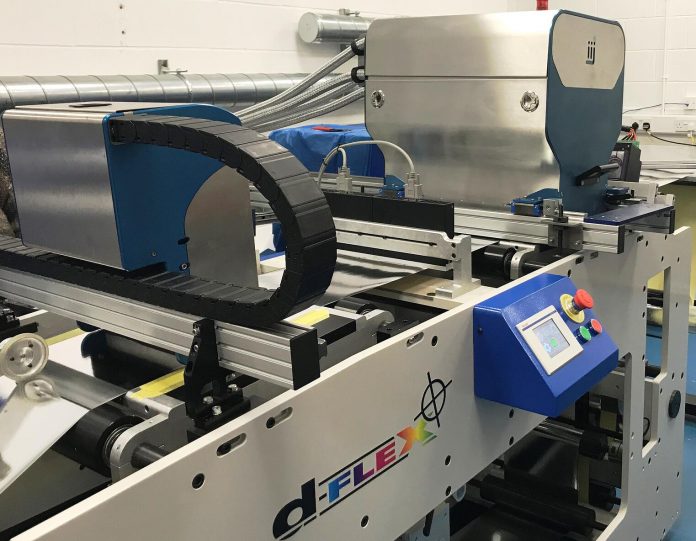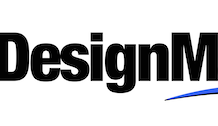According to David Lee, writing for Focus Label Machinery, the global printing industry, with its strongly international consumer and production base, has been as severely affected by the pandemic as any other globalised sector, and it has prompted a lot of introspection about how print and label businesses manage their supply chains, promote their businesses and service their customers.
The Covid-19 pandemic has been a disruptive force for supply chains the world over and has compounded many issues that were simmering below the surface. The weaknesses of the predominant supply chain models before the pandemic, notably ‘just in time’ and ‘lean manufacturing’, which depended on extended supply chains, tight delivery windows and minimal stock holdings, were laid bare by worldwide parts and labour shortages and spiralling transport costs.
If it’s possible to identify any ‘winners’ of the pandemic, in our sector at least, it is the digital printing market. Digital uptake has been on the rise for years, but before the pandemic, the level of digitisation in the print, packaging, and label industry was relatively small, compared to older, flexographic systems. The conditions of the past two years, however, have seen digital print strategies become a realistic tool to sustain businesses, drive new sales and open markets for print SMEs that may otherwise have struggled to operate.
The digital versus analogue printing debate revolves around three broad areas:
1) The lifetime cost of ownership of printing machinery, including initial investment and ongoing costs.
2) Operating speed and efficiency.
3) Versatility and responsiveness.
On the eve of the pandemic there were no clear winners in the debate. On the one hand, digital printing offered far greater convenience, response time and reliability than analogue flexographic printing.
On the other hand, flexographic printing was still unbeaten for cost, in-line finishing and overall reliability over large production runs. Digital presses also had a higher lifetime cost of ownership, in general, than flexo presses, with costlier consumables and more expensive maintenance requirements.
Hybrid flexo/digital solutions had begun to blur the boundaries between digital and analogue printing, but there was still the impression that going fully digital would mean sacrificing volume printing cost effectiveness for the ability to conduct variable data printing and short production runs, a risk that not many label printing businesses were prepared to make. The question is, has a crossover point been reached in which digital printing is cheaper and better, across the board, than conventional printing options?
When we last broached this subject in 2019, the answer was no, or at least, not yet. Digital printing was still more expensive than flexographic printing, predominantly because of the superior running speed of flexo presses and their extraordinary longevity.
Changes brought about by the pandemic, however, including the benefit of more straightforward supply chains for digital printing, falling cost of ownership for digital presses and a consistent fall in prices for digital finishing equipment and toners, may have switched the balance in favour of digital.
It is strongly possible that 2022 will be the year that the digital revolution finally comes to the fore in the label printing industry. From an investment perspective, therefore, it makes sense to weigh up the costs and benefits to your business of being an ‘early adopter’ in the trend towards ever greater digitisation.
Most label, packaging, and print businesses now operate a mix of analogue/flexographic and digital technologies. The debate isn’t about whether it is worth investing in digital equipment at all, this argument has been won in favour of digital technology many years ago, but it is about whether now is the right time to increase the digital elements of your production strategy or if the question can be safely shelved until a future date.
To decide if this is the right time to consider a new investment, give some thought to the following questions:
How much of your current business orders are 1500 linear metres or less? (Short volume orders strongly favour digital print and finishing as the most cost-effective production option)
In what ways would a new digital press or finishing system help you make better use of your existing flexographic/analogue equipment? (No one is suggesting that businesses confine their functional analogue equipment to landfill). What is the approximate value of any productivity increases or efficiency savings, compared to the cost of investing in digital?
Would increasing your digital capabilities allow you to attract new work, increase your capacity and grow your business in 2022? How much would you gain by doing so, compared to the cost of technology investment?
Would investing in digital allow you to bring work back in-house that you are currently outsourcing to digital print providers? How much would you save by doing so, compared to the cost of investment?
Focus Label Machinery partners with a South African representative for their products. For more information, contact:
FOCUS LABEL MACHINERY
https://www.focuslabel.com





















